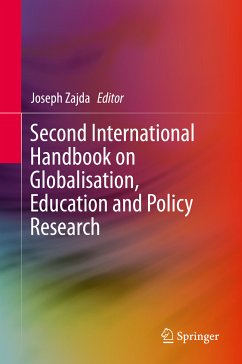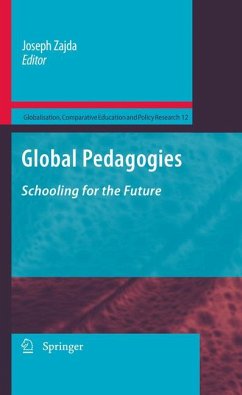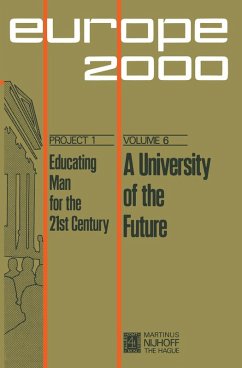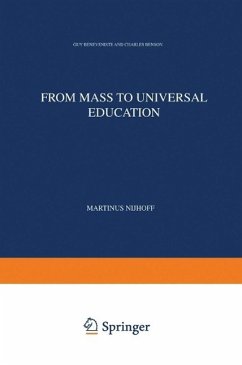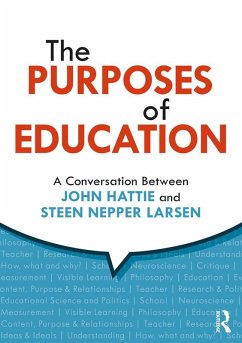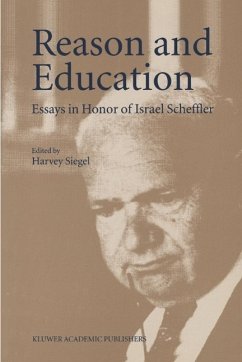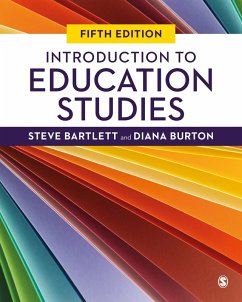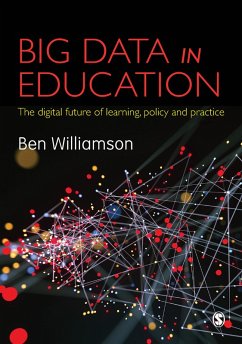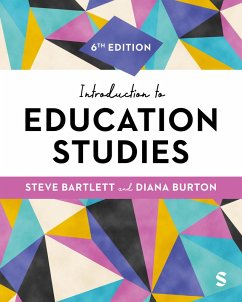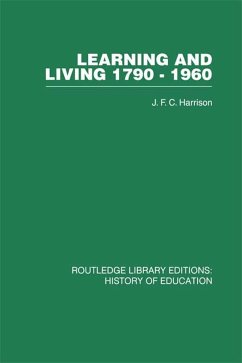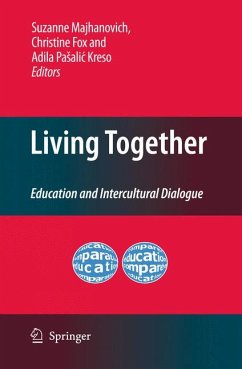
Living Together (eBook, PDF)
Education and Intercultural Dialogue
Redaktion: Majhanovich, Suzanne; Kreso, Adila Pasalic; Fox, Christine
Versandkostenfrei!
Sofort per Download lieferbar
72,95 €
inkl. MwSt.
Weitere Ausgaben:

PAYBACK Punkte
36 °P sammeln!
SUZANNE MAJHANOVICH and CHRISTINE FOX Originally published in the journal International Review of Education, Volume 54, Nos 3-4, 287-297. DOI: 10. 1007/s11159-008-9097-9 Springer Science+Business Media B. V. 2008 The papers in this collection have been selected from over 800 presentations given at the XIIIth World Congress of Comparative Education Societies, held at the University of Sarajevo, Bosnia and Herzegovina, from 3 to 7 September 2007. The Congress was hosted on behalf of the WCCES by the Mediterranean Society of Comparative Education and in association with the International Associat...
SUZANNE MAJHANOVICH and CHRISTINE FOX Originally published in the journal International Review of Education, Volume 54, Nos 3-4, 287-297. DOI: 10. 1007/s11159-008-9097-9 Springer Science+Business Media B. V. 2008 The papers in this collection have been selected from over 800 presentations given at the XIIIth World Congress of Comparative Education Societies, held at the University of Sarajevo, Bosnia and Herzegovina, from 3 to 7 September 2007. The Congress was hosted on behalf of the WCCES by the Mediterranean Society of Comparative Education and in association with the International Association of Intercultural Education. For such an int- national gathering, it was appropriate that the theme chosen was ''Living Together: Education and Intercultural Dialogue'', providing scope for c- tributions by participating scholars, policy makers and practitioners in e- cation from some 70 countries. The presenters approached contemporary educational issues with knowledge and insights about a world characterized by the tensions and demands of global and local interests, by regional c- ?icts and post-con?ict deliberations, and by the global diaspora, with c- tural, religious and linguistic diversity within both small and large states. Only a very few papers could be included for this collection, but they rep- sent some of the key topics under discussion during the Congress. The papers were selected from the recommendations of the convenors of the 13 Thematic Groups, the keynote addresses and several symposia.
Dieser Download kann aus rechtlichen Gründen nur mit Rechnungsadresse in A, B, BG, CY, CZ, D, DK, EW, E, FIN, F, GR, HR, H, IRL, I, LT, L, LR, M, NL, PL, P, R, S, SLO, SK ausgeliefert werden.



